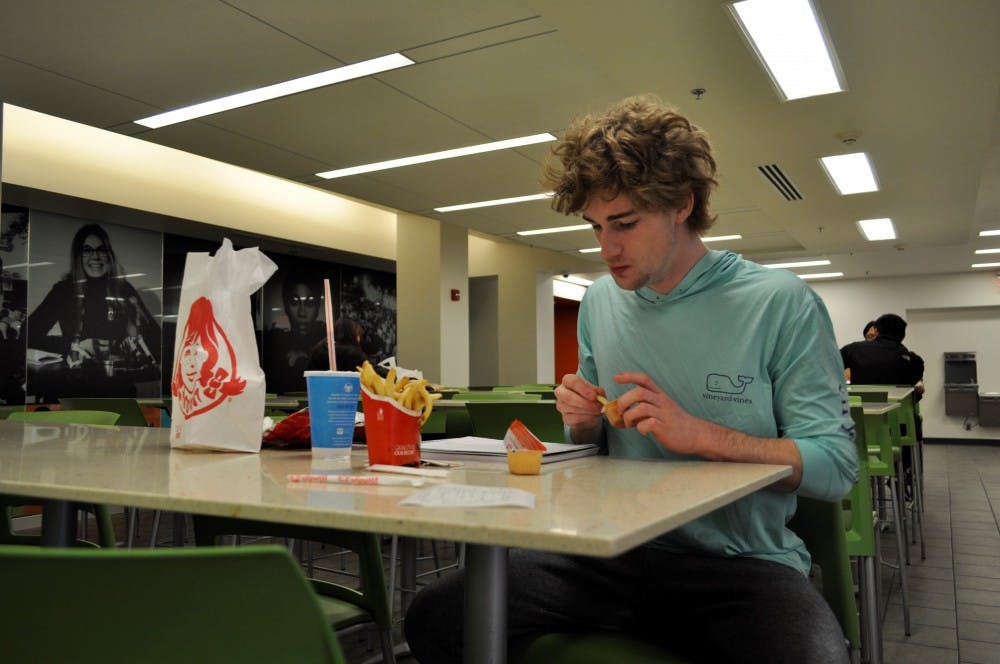Junior Lindsey Hoover wasn’t raised in a home that prioritized nutrition. Her diet consisted of Tastykakes and Toaster Strudels. But now, she starts her mornings with a bowl of cereal and almond milk, and tries to work out every day.
“What makes me prioritize it is I know it’s something good for me, in a lot of different aspects and it’s not really going to ever hurt me,” she said. “It’s going to relieve some stress or benefit my health. It’s a win-win situation.”
It’s not always easy. For lunch, she typically snacks on granola bars. She doesn’t have time to eat a full meal.
She’s not the only student who feels this way.
“The expectations of a college student are exponentially growing and that means things are going to fall by the wayside,” said Kyle Harmon, Campus Recreation fitness and wellness outreach intern. “Eating healthy, exercising, sleeping — just all those healthy habits that allow you to achieve more in the long run — are the first to go.”
Although aspects of a college lifestyle can make it difficult for students be healthy, Sarah Richardson, Campus Recreation group fitness intern, said the problem isn’t that students aren’t aware of their unhealthy habits. The problem is students think they can change their unhealthy habits after college.
“This generation is very profession-minded,” she said. “They focus so much on the future that they’re not taking care of themselves now. It’s like, ‘I’ll be happy once I get there. I’ll stop these habits once I get to where I want to go.’ I think that’s the disconnect. Maybe this isn’t the best way to get there. Maybe taking care of yourself is the best way to get there.”
Richardson, who graduated from UNC in 2017, said she understands the pressure to push physical health aside to prioritize school.
“That’s why we’re especially hard on ourselves. We come here and think we have to be perfect. We don’t realize how hard it is,” she said. “It’s OK to get a C, and it’s OK to take a day away from the gym.”




